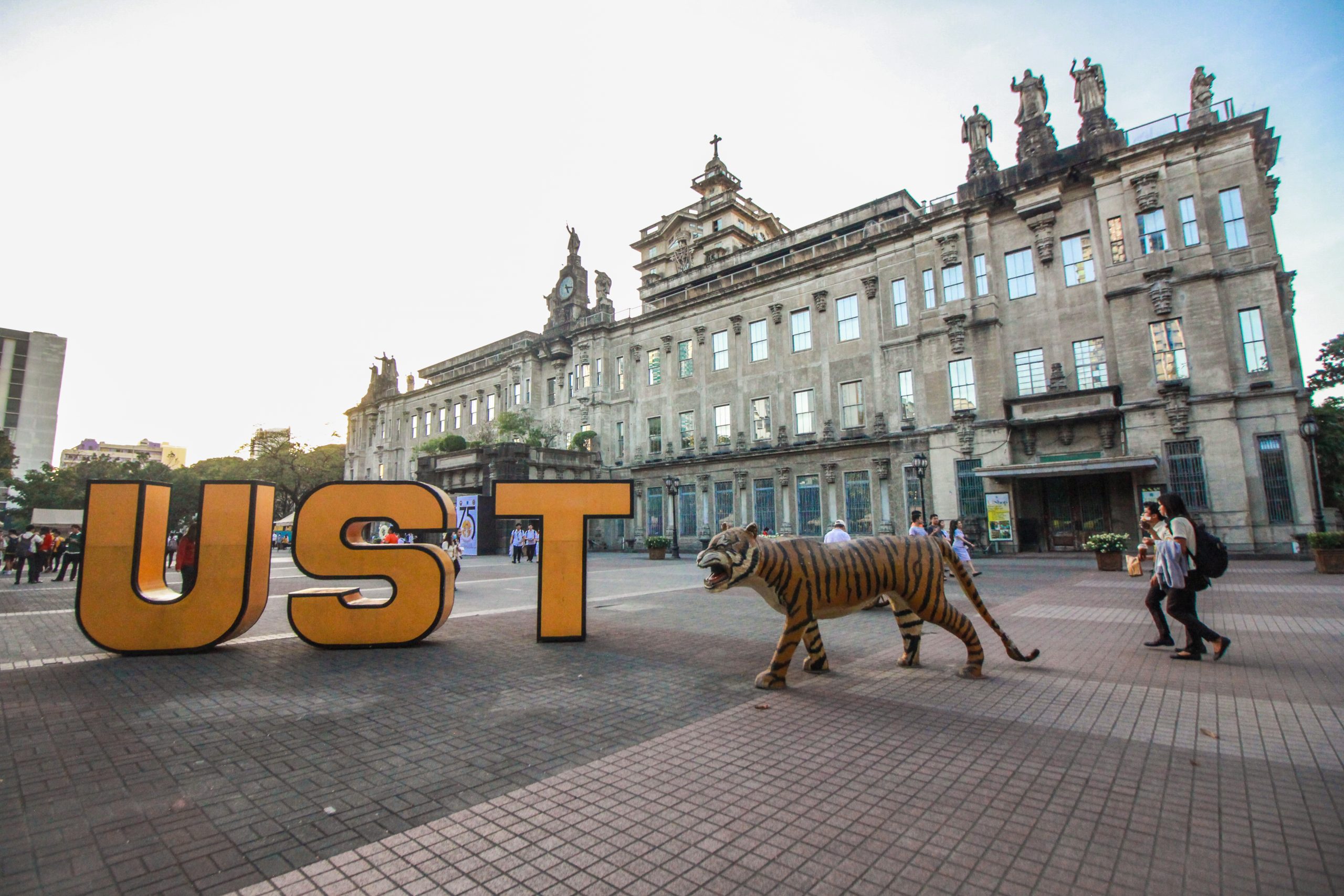
THE UNIVERSITY is gearing up for the resumption of limited face-to-face (F2F) classes in three more academic units for the second term of the Academic Year 2021-2022, amid declining Covid-19 cases.
On Sept. 28, the Commission on Higher Education (CHEd) announced that President Rodrigo Duterte had approved the resumption of in-person classes in five additional academic areas, including engineering and technology, hospitality, and tourism.
Deans of the Faculty of Engineering, College of Information and Computing Sciences (CICS), and College of Tourism and Hospitality Management (CTHM) are preparing for the expansion of limited face-to-face classes, officials said.
Vice Rector for Academic Affairs Prof. Cheryl Peralta told the Varsitarian that the three academic units were working on their F2F plans, retrofitting their facilities, and consulting with staff and students.
“The proposal will need to be presented to and approved by the University Crisis Management Committee. Thereafter, a consultation will have to be undertaken with the local government of Manila prior to filing the application for authority with CHEd,” Peralta said.
Peralta said administrators were waiting for the CHEd memoranda for specific requirements in each program, such as RT-PCR testing for students.
Students and staff are “strongly encouraged” to be vaccinated, she said.
CHEd Chairman Prospero de Vera on Oct. 11 said the commission was looking to launch limited face-to-face classes in all degree programs in parts of the Philippines with low Covid-19 risk.
Preparations for reopening
Engineering Dean Prof. Angelo de la Cruz said that not all laboratory courses would be conducted in-person to minimize on-site visits.
“Overlapping outcomes of various laboratory courses may be integrated into one culminating laboratory course to minimize the onsite visit of students,” de la Cruz told the Varsitarian.
The engineering faculty started conducting inspections for the retrofitting of laboratories and facilities on Oct. 4.
The teaching staff will undergo safety training for in-person classes, de la Cruz said.
Engineering and CICS faculty will coordinate their schedule of the engagements since both use the Roque Ruaño Building, he said.
The Varsitarian tried to reach out to the CICS but received no response.
CICS Student Council President Jeric Mataga said the college did not want to “pre-empt” its plans. Mataga said the college was looking at holding in-person classes for four courses next term.
“All of these are subject to change depending on what CHEd’s memorandum contains in the future. Nevertheless, the CICS admin will be committing to a series of dialogues with students and parents once the guidelines are clearer,” Mataga told the Varsitarian.
CTHM Dean Assoc. Prof. Gezzez Granado said he had met with the administrators of the Facilities Management Office (FMO) to begin retrofitting work.
CTHM administrators will meet students and parents ahead of the resumption of the limited physical classes, Granado said.
“[CTHM] will be conducting town hall meetings with our students and their parents regarding this once we get the CHEd memorandum order regarding limited face-to-face classes,” Granado told the Varsitarian.
Calls for safe reopening
Mataga, a fourth-year CICS student, said that while he approves of in-person classes, the University must do its part in ensuring the safety of students and their families.
“My only problem with this situation siguro is that, aside from having vaccinations in-campus, UST itself hasn’t exactly supported #LigtasNaBalikEskwela or pushed for endeavors similar to it, at least none that I know of. UST has the resources and the people to effectively get more youth back into schools safely,” Mataga said.
Graduating CTHM student Al Reile de la Torre said he was both excited and hesitant to go back to the campus, citing concerns over safety, vaccinations, and additional expenses.
“For now, I am still hesitant with physical classes unless the University will address those concerns,” de la Torre said.
Karl Daguio, an engineering junior, said he understood that courses in his program were better delivered in person, but was “a bit anxious” about how the University would conduct in-person classes.
“As an engineer, we must know things we see and touch, not just through some simulator where you just plug in the values,” Daguio told the Varsitarian.
In-person internships for medical technology and physical and occupational therapy students resumed on Oct. 18 after being halted for two months due to the Covid-19 Delta variant threat. with reports from Christine Joyce A. Paras and Joanne Christine P. Ramos

0 Comments